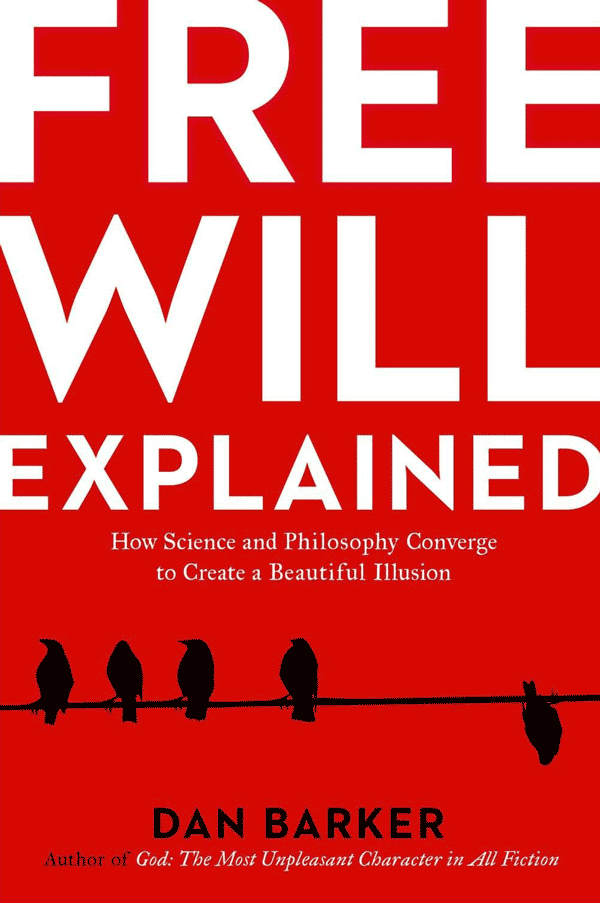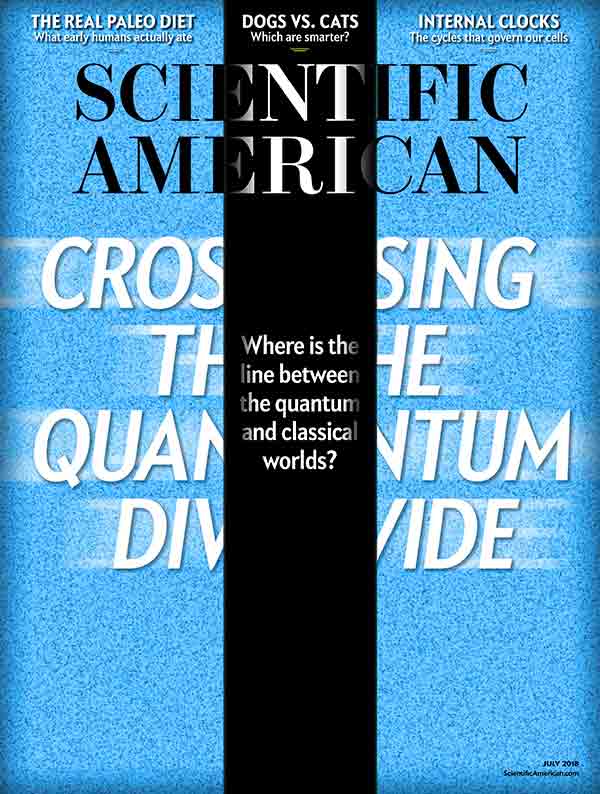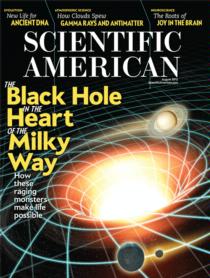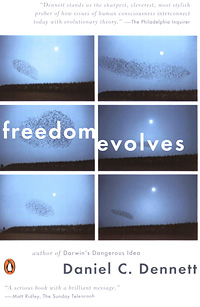Are consciousness, free will and God insoluble mysteries?
In 1967 British biologist and Nobel laureate Sir Peter Medawar famously characterized science as, in book title form, The Art of the Soluble. “Good scientists study the most important problems they think they can solve. It is, after all, their professional business to solve problems, not merely to grapple with them,” he wrote.
For millennia, the greatest minds of our species have grappled to gain purchase on the vertiginous ontological cliffs of three great mysteries—consciousness, free will and God—without ascending anywhere near the thin air of their peaks. Unlike other inscrutable problems, such as the structure of the atom, the molecular basis of replication and the causes of human violence, which have witnessed stunning advancements of enlightenment, these three seem to recede ever further away from understanding, even as we race ever faster to catch them in our scientific nets.
Are these “hard” problems, as philosopher David Chalmers characterized consciousness, or are they truly insoluble “mysterian” problems, as philosopher Owen Flanagan designated them (inspired by the 1960s rock group Question Mark and the Mysterians)? The “old mysterians” were dualists who believed in nonmaterial properties, such as the soul, that cannot be explained by natural processes. The “new mysterians,” Flanagan says, contend that consciousness can never be explained because of the limitations of human cognition. I contend that not only consciousness but also free will and God are mysterian problems—not because we are not yet smart enough to solve them but because they can never be solved, not even in principle, relating to how the concepts are conceived in language. Call those of us in this camp the “final mysterians.” (continue reading…)
read or write comments (50)
Foreword to Free Will Explained: How Science and Philosophy Converged to Produce a Beautiful Illusion, by Dan Barker (Sterling. 2018. ISBN 9781454927358).

In 1985, the physiologist Benjamin Libet conducted a series of experiments that involved taking EEG readings of subjects’ brains engaged in a task that required them to press a button at random intervals whenever they felt like it during the session. Results: several seconds before the “decision” was consciously made by the subject, the brain’s motor cortex was activated.1 The neuroscientist John-Dylan Haynes employed fMRI brain scans in a 2011 study in which subjects inside the scanner were instructed to press one of two buttons whenever they wanted while observing a series of random letters. The subjects were told to verbally report which letter was on the screen when they “decided” to press the button. Results: the time between brain activation and conscious awareness of a “choice” was several seconds, and in some cases a full seven seconds.2
In these studies, and others, scientists measuring subjects’ brains know which decision they would make before the subjects themselves know it! That is spooky, and if these results don’t bother you then you’re not thinking hard enough about them. What they imply is that we are not free to choose in the way we think we are. We feel free, but that’s just what our conscious self believes because it doesn’t know about the inputs feeding into it from below that have already made the choice. As the neuroscientist Sam Harris articulated it in his widely-read book Free Will, “Our wills are simply not of our own making. Thoughts and intentions emerge from background causes of which we are unaware and over which we exert no conscious control. We do not have the freedom we think we have.”3 (continue reading…)
Comments Off on Finding Freedom in a Determined Universe
Volition as self-control exerts veto power over impulses
AT A RESTAURANT RECENTLY I faced many temptations: a heavy stout beer, a buttery escargot appetizer, a marbled steak, cheesecake. The neural networks in my brain that have evolved to produce the emotion of hunger for sweet and fatty foods, which in our ancestral environment were both rare and sustaining, were firing away to get me to make those selections. In competition were signals from other neural networks that have evolved to make me care about my future health, in particular how I view my body image for status among males and appeal to females and how sluggish I feel after a rich meal and the amount of exercise I will need to counter it. In the end, I ordered a light beer, salmon and a salad with vinaigrette dressing and split a mildly rich chocolate cake with my companion.
Was I free to make these choices? According to neuroscientist Sam Harris in his luminous new book Free Will (Free Press, 2012), I was not. “Free will is an illusion,” Harris writes. “Our wills are simply not of our own making.” Every step in the causal chain above is fully determined by forces and conditions not of my choosing, from my evolved taste preferences to my learned social status concerns—causal pathways laid down by my ancestors and parents, culture and society, peer groups and friends, mentors and teachers, and historical contingencies going all the way back to my birth and before. (continue reading…)
read or write comments (32)
I believe, but cannot prove, that reality exists independent of its human and social constructions. Science as a method, and naturalism as a philosophy, together create the best tool we have for understanding that reality. Because science is cumulative, building on itself in progressive fashion, we can achieve an ever-greater understanding of reality. Our knowledge of nature remains provisional because we can never know if we have final Truth. (continue reading…)
read or write comments (17)
A review of Daniel C. Dennett’s Freedom Evolves.
Next to the question of God’s existence there is arguably no greater conundrum in Western thought than the problem of free will and determinism, and the two are inextricably interdigitated. God’s omniscience and (continue reading…)
read or write comments (8)





